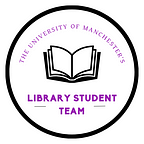Top Ten Tips for Successful Searching
Research is one of the most important skills that you will develop and use during your time at University. Finding that perfect journal or that exact article that backs up your argument can seem impossible, however with some of our top tips and regular practice, you’ll find yourself getting the exact information you need in order to excel. You can listen to a podcast version of this post below.
Tip 1 — It’s very important that you understand the question you’re being asked before you begin your research
Not answering the question is one of the most common mistakes students make. Make sure to break the question down into parts and highlight key words in each section. This will help you focus your research and ensure that you answer all the different segments of the question.
Tip 2 — Identify key words before searching them. Be prepared to use synonyms or alternative terms to ensure that you don’t miss out on any information.
Once you’ve identified the key words and concepts you need to research for your assignment, make sure to look up if they have any alternative terms or synonyms. This could be vital in finding the most up to date and relevant information.
Tip 3 — To get more results, remove words that aren’t essential and broaden the terms you’re using. To get fewer results, make your language more specific and limit your search by date, language etc.
Sometimes our search results may be limited because we’re using very specific terms. When this happens, try and remove words that are not key concepts. This may help you get more information and background knowledge on the overall topic. On the other hand, sometimes you can get an overwhelming number of results and may find it difficult to filter out what exactly you need. To avoid this, be more specific in your search, look for articles that are in the specific time period you’re researching or look for the most recent updates.
Tip 4 — Find out what resources are most appropriate to use for your assignment. The reference material you use can make or break your assignment
Most assignments will require you to use academic resources such as journals and specific literature, it is absolutely essential that you do so and make sure they are credible resources. Try out this tutorial on Knowing your sources.
Tip 5 — Peer reviewed journals can only publish articles that meet the standards set for a given discipline. You can use the Library’s database to limit your search results to peer reviewed articles only
Peer reviewed articles are high quality academic sources of information. They can be trusted to be reliable. When using the library’s database, make sure to add filters in order to find the best resources!
Tip 6 — Evaluate your sources by asking questions. This will help you to reveal the overall quality of your sources and determine if they’re suitable for your academic work.
Who wrote this? Why did they write it? How trustworthy is their evidence and how neutral is their argument? These are just some of the questions you should be asking before evaluating a source. Evaluating your sources is a great tutorial to help you with that.
Tip 7 — Be aware that the date of publication may affect how useful the source is. It’s also important to check when the research was actually conducted
Developments are constantly being made in every field of study; therefore it is essential that you use the most recent sources to keep your work up to date and relevant. Some sources may also use old research and findings to back up their points. Using newer resources would definitely help you successfully evaluate older research, but make sure that everything you’re using comes from a credible source!
Tip 8 — Google can give you open access to a wide variety of sources, but this does not guarantee quality control. Some sources may be inaccurate, biased or commercially motivated.
While search engines are definitely a lifesaver when it comes to research, it’s important to keep in mind that some of the information that they present may be unreliable. It’s a good idea to use engines like Google Scholar and the University of Manchester Library search engine to find more reliable academic sources.
Tip 9 — When you find a source, don’t jump straight into the main body of the text. Read the abstract, it’s there to give you a brief summary and ensures that you don’t waste time on irrelevant materials.
Getting your sources together can be very time consuming, especially when you have to go through long reading lists and archives. An abstract will give you the general gist of the source and this will help you get a clearer picture of whether or not the source is useful to you. If you’re still unsure, reading the introduction and conclusion is also helpful!
Tip 10 — The library has an extraordinary range of primary sources. These range from clay tablets dating back to 2500 BCE to contemporary maps and digital archives.
The University of Manchester has an extremely wide range of resources for students to use! Make sure to make the most out of what they offer. If you’re in doubt just check the Library search engine or website, or ask a member of staff to help you.
